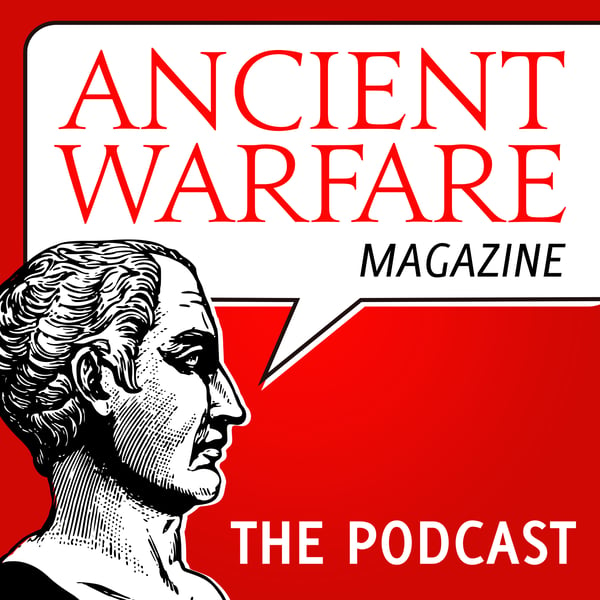AWA - How was the ancient Athenian army organised?
Ancient Warfare Podcast
The History Network
4.4 • 631 Ratings
🗓️ 26 June 2020
⏱️ 8 minutes
🧾️ Download transcript
Summary
In Ancient Warfare Answers, Jasper (editor of Ancient Warfare Magazine) and Murray (deputy editor) tackle your questions on ancient military topics.
In this episode Murray tells us how the ancient Athenian army was organised.
If you have any questions email Jasper at [email protected]
Transcript
Click on a timestamp to play from that location
| 0:00.0 | Hello and welcome to the third episode of Ancient Warfare Answers, our new series of very short videos in which we try to answer one particular question real quick in five to ten minutes. |
| 0:13.5 | With me today is Murray Dom, the assistant editor of ancient warfare, and I'm Jasper Oathouse, and I'm the editor of the magazine. |
| 0:20.6 | And question today is Greek, so it goes to Murray. |
| 0:23.6 | And it is, yeah, well, you know, that's how we sort of divided them. |
| 0:27.9 | Yeah, at least for now, for now. |
| 0:30.5 | The question is, Murray, what can you tell me about the organization of the Athenian army? |
| 0:36.0 | Oh, what a good question. |
| 0:37.2 | Because, of course, there's so much focus given to the Spartans and Athenian army. Oh, what a good question. Because of course, there's so |
| 0:38.4 | much focus given to the Spartans and the ancient Spartan army. And of course, we know a lot about |
| 0:43.7 | the ancient Spartan army, written by Athenians on the most part. And the bizarre thing is that |
| 0:48.7 | they seem to have neglected telling us about their own army. So we've got a couple of sources |
| 0:53.9 | from various different time |
| 0:56.0 | periods, and we have to work out whether it's telling us something that exists when it was written. |
| 1:01.5 | So there's a work by, well, people say Aristotle, but then there's the pseudo-aristotle, |
| 1:06.6 | Athenian constitution, which gives us information in the 320s, and then it's the how far back |
| 1:11.9 | does that go? |
| 1:12.7 | So we have Herodotus, who's telling us about the 10 Stratagoi, who have a daily command, |
| 1:17.9 | and they rotate that daily command, but at the same time there's a polymark, Kilamacus, |
| 1:22.4 | at the Battle of Marathon, and we're not sure if that's a transitional system or whether |
| 1:26.5 | Herodotus has got it wrong, or whether they're drawn by lot or whether they're elected. |
| 1:32.9 | Later, and it would seem to be reasonably soon after the Battle of Marathon, what you have is the 10 Stratagoy at Athens are elected from the entire body of citizens, not from the tribe of the individual. |
| 1:49.3 | So they wouldn't elect their own or they wouldn't draw lots of their own. |
... |
Please login to see the full transcript.
Disclaimer: The podcast and artwork embedded on this page are from The History Network, and are the property of its owner and not affiliated with or endorsed by Tapesearch.
Generated transcripts are the property of The History Network and are distributed freely under the Fair Use doctrine. Transcripts generated by Tapesearch are not guaranteed to be accurate.
Copyright © Tapesearch 2025.

